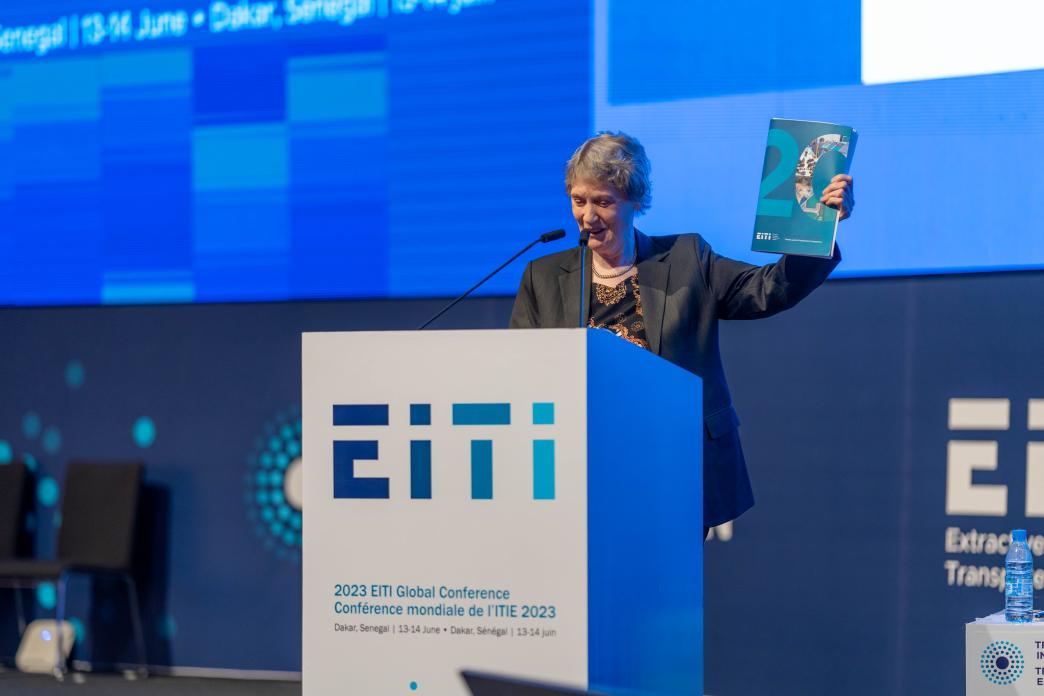The energy transition requires that mining, oil and gas companies embrace transparency—not run away from it.
One way that companies can disclose information of public interest is through the Extractive Industries Transparency Initiative. Last year, the EITI defined expectations for “supporting companies” in order to create an accountability framework for private sector participants in the initiative.
The new EITI standard—agreed by governments, companies and civil society representatives in June—places the energy transition at the heart of good governance. The EITI has entered a new chapter to help inform and drive the transition away from coal, oil and gas to a world powered by solar, wind and other forms of renewable energy.

On 28 September, Chevron wrote to EITI board chair Helen Clark informing her of its decision to no longer participate as an EITI supporting company, joining fellow oil and gas major ConocoPhillips in turning its back on multistakeholder dialogue about extractive sector policy, transparency and accountability. EITI is not just a mechanism for reporting information about licenses, contracts, payments and other aspects of extractives relevant for citizens in resource-producing countries; it is also a rare and unique space for dialogue between diverse types of actors. It is one of the only forums where big companies like Chevron sit across the table from representatives of civil society.
While Chevron has said it will still participate in the EITI at the national level in countries where it extracts oil and gas, its disengagement at the global level leaves the company even further behind in what should be a race to the top in extractive sector reform. Chevron helped to shape the EITI Standard; what does Chevron mean by walking away from it? (The company was an EITI board member from the board’s inception until June 2022.)
This prompts the question of whether Chevron really bought into the EITI’s principles during its time on the board, or was rather using the initiative as a fig leaf to launder its reputation as an oil company indifferent to social and environmental impacts of its operations.
For too many years, Chevron actively undermined the EITI, efforts for climate action, and the introduction of laws for mandatory payment disclosure in the U.S. and elsewhere. Civil society groups involved in the EITI repeatedly called Chevron out for its duplicity. Avoiding such scrutiny seems a likely reason for the company’s recent exit from the initiative. Having a seat on the EITI board brings responsibility, and companies must show leadership by being earnest and genuine ambassadors of the EITI Standard. In today’s world, it means they must work with governments and civil society for a just energy transition.
But Chevron isn’t the only scofflaw. Despite consistent calls from communities around the world, some companies including ExxonMobil refuse to fully publish their project-level payments to governments in EITI-implementing and non-implementing countries (as described in EITI companies expectations nos. 2 and 3), according to a recent EITI assessment of supporting companies.
Project-level reporting of taxes, royalties, fees and other payments is at the heart of the EITI; and is now an international norm that goes beyond EITI. The Global Reporting Initiative includes project-by-project reporting as does the International Council of Mines and Metals (ICMM) in its policy standards for members. In Canada, the 27 EU nations, Norway, Switzerland, U.K. and more than 50 countries implementing the EITI companies make these disclosures, which are the minimum baseline level of transparency required to effectively monitor corruption in this notoriously opaque sector.
Yet many supporting companies fall short of EITI expectations. For example, 73 percent of supporting companies do not meet the expectations on beneficial ownership transparency and 27 percent have fallen short on contract transparency (expectations nos. 6 and 8).
It doesn’t have to be this way. Companies like Equinor, Newmont, Repsol, Rio Tinto and a few others fully meet the EITI’s company expectations, leading the way to better practices. This shows their commitment to transparency and the values of EITI. Though this does not automatically qualify them as responsible climate players, we strongly encourage others to follow their example.
The detailed findings of the EITI assessment of company performance were published after the last EITI conference in Dakar. Members therefore missed the opportunity to use the assessment as the basis for selecting the best performers to represent the private sector on the EITI board. In Dakar, a controversial nomination resulted in ExxonMobil remaining on the board. The company must step up rather than step down like Chevron and move toward greater transparency by addressing the gaps in its own adherence to EITI expectations of supporting companies. This will help lift the standards of integrity in the EITI.
The EITI’s new energy transition agenda will require the initiative to engage further with renewables companies, but now more than ever it needs big oil and gas companies to show leadership and strengthen their participation, instead of just walking away.
The authors are civil society representatives on EITI board (2023-2026). Clancy Moore is the CEO of Transparency International Australia. Matthieu Salomon is the anticorruption lead at the Natural Resource Governance Institute.











